For those of you who have ever witnessed my artistic talent, you'll know it's limited. God has blessed me with many gifts, but the gift of drawing is not one of them. But, I decided anyway to try and draw Francis, a little boy I met in Kaara. Why? Partly because, I don't want to post his photo all over the internet and partly because I had a rare artistic desire.
Not surprisingly the image below does not represent him physically in anyway, but it also represents him and his story perfectly. This could be any African boy (or girl according to some of my friends), of any age, he's doesn't strike you as unique and yet he touched my heart the first time we met.
In essence, Francis's story probably belongs to so many other boys (and girls) who live in Africa.
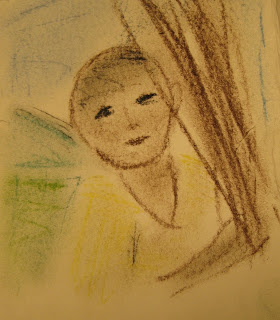 |
| Collecting firewood. |
The first time I met him, he touched my heart.
On the first Sunday we were in Kaara, we as a team were invited in the afternoon to go and play football with the local men, so off we trundled down the valley to the pitch along with lots of children. When Liz saw Francis she told him off for not washing on a Sunday. And once she said it, I realised that whilst most of the children were clean and in their Sunday best, some, like Francis were covered in dirt and wearing rags. But, that was as far as my thoughts went, I didn't ask myself why this was.
After playing football for a while, I decided to sit down with Liz and naturally got surrounded by children fascinated by a 'Musunga' (white person) they wanted to touch my hands and arms, play with my hair, wear my sunglasses, use my camera...the list in endless. Francis somehow managed to sit right next to me, despite the shoving and pushing of the children (mainly around my hair) and their constant chatter to each other, he sat quietly looking up at me with a face of joy and contentedness as he held one of my hands tightly in his two. And he was happy, just to sit and hold my hand. He wanted nothing more, and when I took my hand away he waited patiently until he got to hold it again.
It touched me that, he had to little, he was dressed in rags and had a dirty face, and yet all he wanted was to sit by me and share the afternoon with me.
The second time I met him, he broke my heart.
The following Saturday, Liz took us on a tour of Kaara, visiting the homes of people where the Diocese had helped to provide 4,000 L water tanks. The last two homes we visited were of women suffering from HIV/Aids and the Diocese had provided the water tanks free of charge.
On our way back home, we were walking along the road when we ran into a group of children walking in the opposite direction carrying firewood. The oldest was probably five or six whilst the youngest was only three. All of them were carrying as much wood as they could, and among them was Francis. Once again he was dirty and dressed in rags. But then Liz said something that shocked me, "This is Francis, he's the son of the women we've just visited"
This was why he was dressed in rags, his mother was too ill to work and so they had very little money. And this was also the reason he was so dirty whenever we saw him, despite having a water tank it was currently empty and it was reaching the end of the dry season and his Mother was too ill to collect enough water to wash him. It broke my heart. Francis, the little boy whom had touched my heart was in more poverty than I had imagined.
Francis, who wanted so little, really had nothing. He lived in a run down house, without a Father, with a Mother who was ill, dressed in rags and helping to collect firewood to survive. I knew that something in Uganda would shock me, but I didn't expect the need to be so desperate, and yet so hidden. Without Liz telling me, I would never have known Francis's story, never had known his circumstance.
The third and final time I met him, he filled my heart with joy.
The last time I saw Francis, I was in a bad mood. We'd been to visit the Butwa Tribe, which was fantastic however the journey had taken a lot longer than expected and I only had a banana for lunch and we'd run out of water a few hours previously. Consequently, I was very hot, very tired, incredibly thirst and slightly hungry, however I also knew I was close to home and that made me happy that soon I could have a drink of water.
As I marched along the road, on my own as everyone else was walking more slowly, I saw a group of children run out of the trees towards me, one of them being Francis. Despite wanting to keep going in my quest for water, I felt compelled to stay with them, because it was so obvious that's what they wanted. I don't remember what we did, they certainly didn't ask me to dance like the school children always asked us to do, but I stayed with them, waiting as Caz and then Anna caught me up.
And as I waited I realised, how much I should learn off them. They had nothing, and yet were so joyful. And there I was wanting a drink, and in foul mood because I was thirsty, despite knowing that in the house there would be clean water ready to be drunk. By the time time the other two met up with me, my mood had lifted slightly, because I'd realised despite needing a drink so desperately I had a lot to be joyful about. And I should be joyful for what I have not annoyed at what I don't have.
As we left them, we skipped off down the road, still hot, still tired and still very thirsty, but knowing that I have a lot in my life to be grateful for and that I should aim to be joyful even in times of 'suffering.'
.JPG)
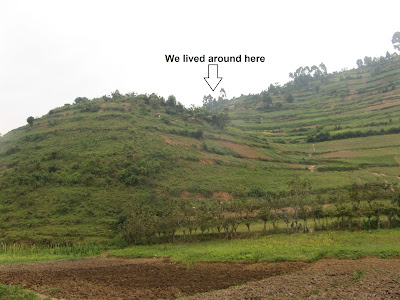.jpg)

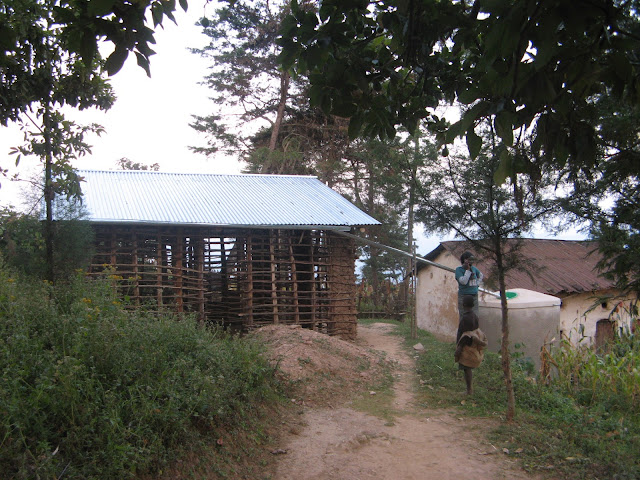.JPG)
.JPG)
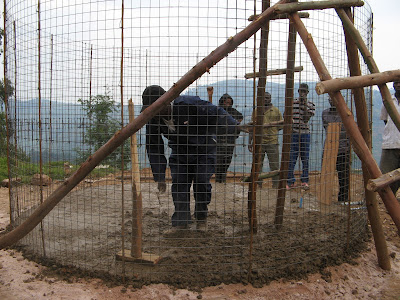.JPG)
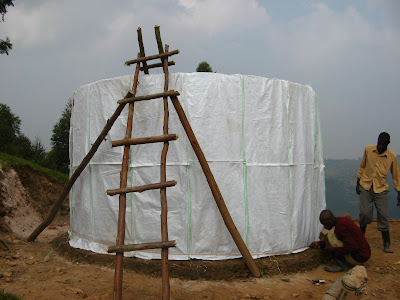.JPG)
.JPG)
.JPG)
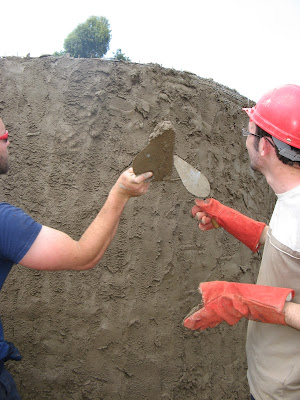.JPG)
.JPG)

.JPG)
.JPG)
.JPG)
.JPG)
